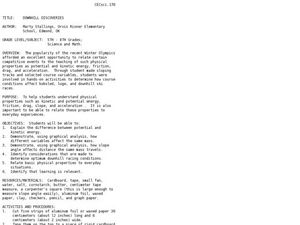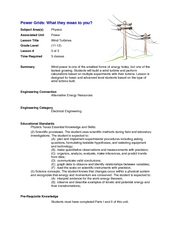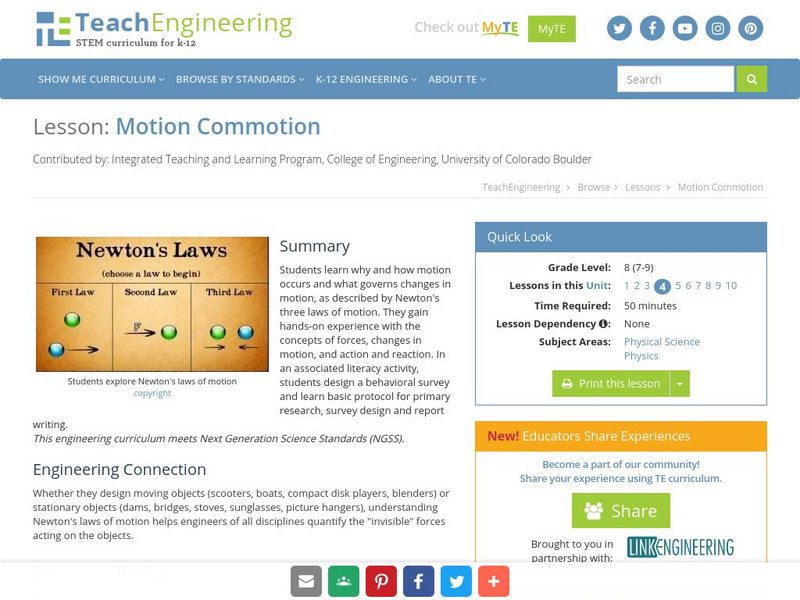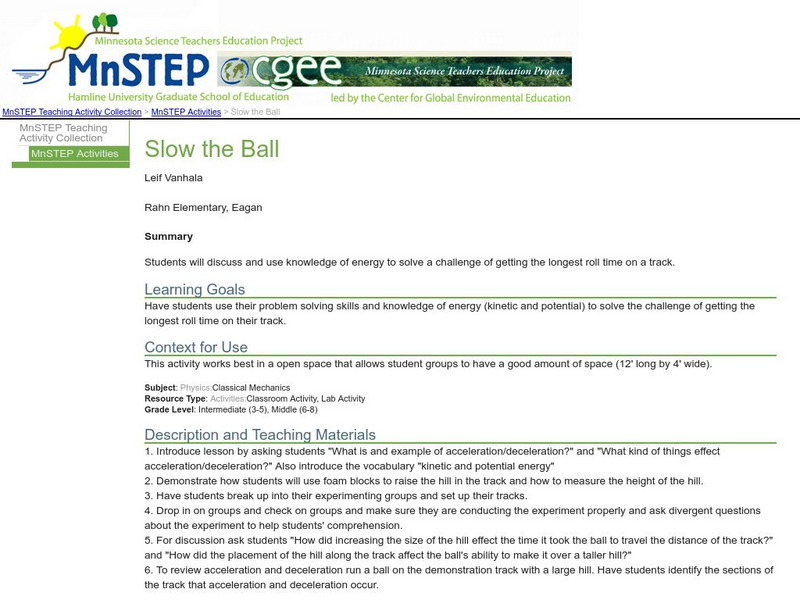Curated OER
Glass Transition in a Rubber Ball
Young scholars illustrate the changes in the properties of a material at its glass transition point. They gather data which they use to construct graphs regarding elastic modules versus absorption modulus, tangent delta, and the effect...
Virginia Department of Education
Equilibrium and Le Chatelier’s Principle
The best part of learning about equilibrium is that nothing changes. Young chemists observe four demonstrations during this lesson: equilibrium in a saturated solution, equilibrium with an acid-base indicator, equilibrium with cobalt...
Curated OER
Heat And Heat Transfer
Students role play molecules in a container as the container is heated to develop a definition of heat and temperature. They also observe demonstrations of conduction, convection, radiation, and phase transfer. Using these observations...
Curated OER
Downhill Discoveries
Pupils are involved in hands-on activities to determine how course conditions affect bobsled, luge, and downhill ski races.
Curated OER
Wind Turbines
Students build their own wind turbine. In this physics lesson, students calculate the power output of their wind turbines. They evaluate their design and make the necessary modifications.
Curated OER
Where My Peeps At?
Students conduct a series of activity that demonstrates Charles' and Boyle's Law. In this chemistry instructional activity, students determine the relationship among pressure, volume and temperature. They solve problems using...
Curated OER
Scientific Images & Animations
Students view a variety of scientific images and animations. They explore the world of science and visual art. Students enrich their knowledge through animation examinations of thoughts and feelings and awesome color rainbows of...
Science Education Resource Center at Carleton College
Serc: Using Your Marbles: Making Energy Work for You
This activity is based on the common experiment of running a marble down a ramp to do work on a cup. Learners will be able to see the relationship between mass and energy of the marble and the ramp height.
John F. Kennedy Center
The Kennedy Center: Balancing Mobiles
In this lesson plan, students will apply mathematical, science, and engineering concepts to experiment with balancing levers. They will learn to classify types of levers to design and build a simplified mobile. Students will explore...
TeachEngineering
Teach Engineering: Motion Commotion
Young scholars learn why and how motion occurs and what governs changes in motion, as described by Newton's three laws of motion. They gain hands-on experience with the concepts of forces, changes in motion, and action and reaction. In...
Science Education Resource Center at Carleton College
Serc: Mn Step: Slow the Ball
For this experiment, students will design a track for a rolling ball to try to have the longest roll time possible. They will, in the process, apply their understanding of kinetic and potential energy, and acceleration and deceleration.












